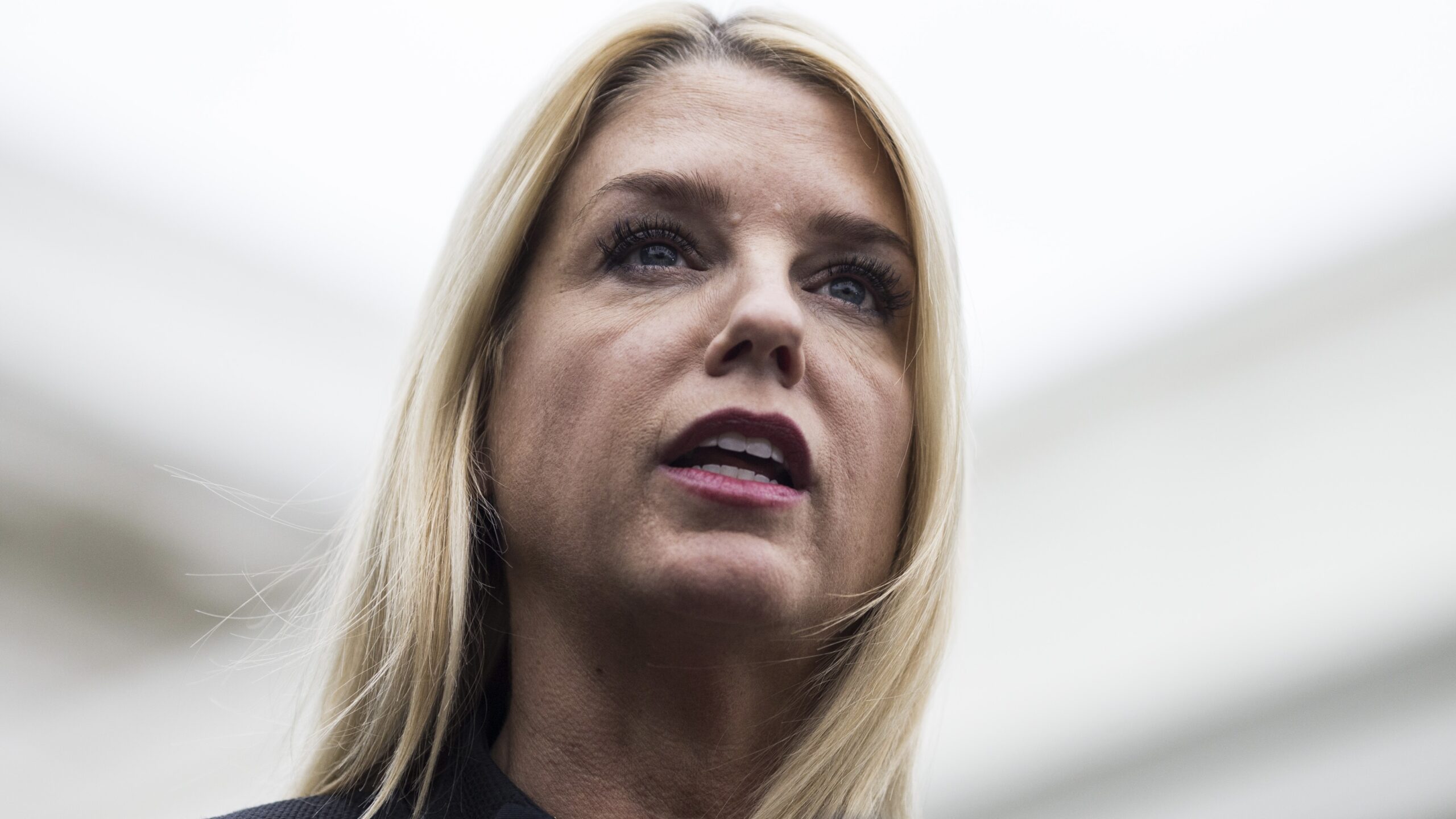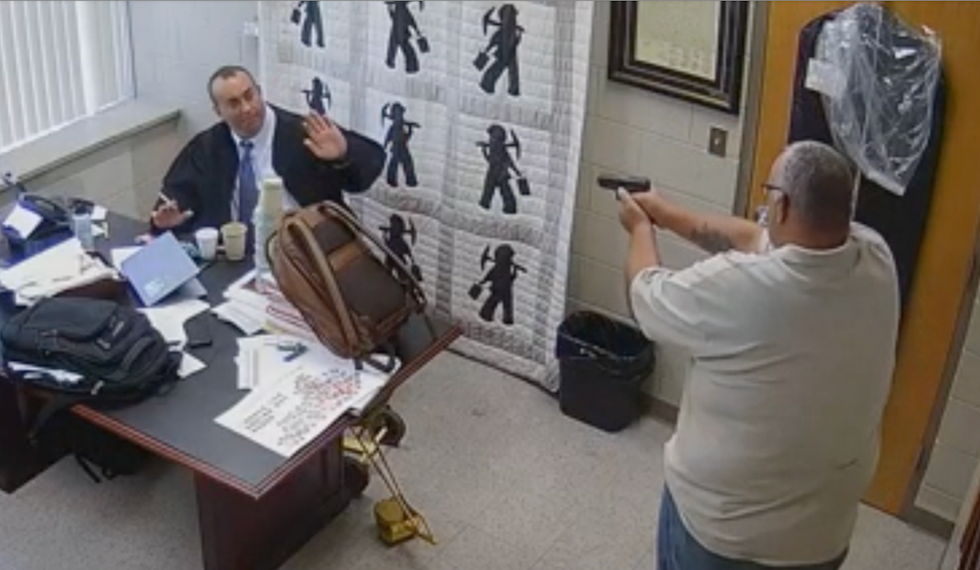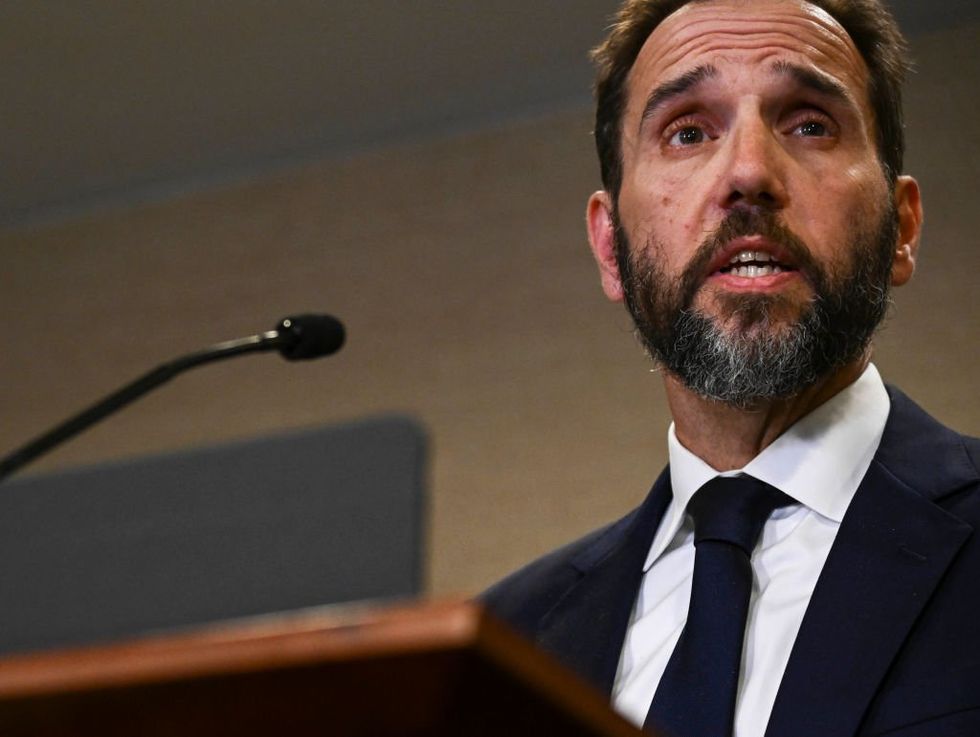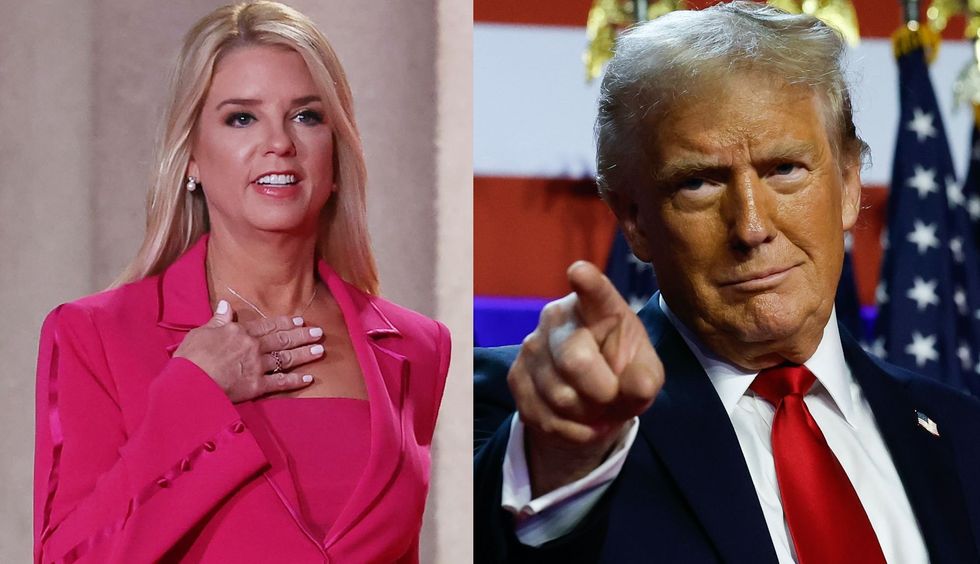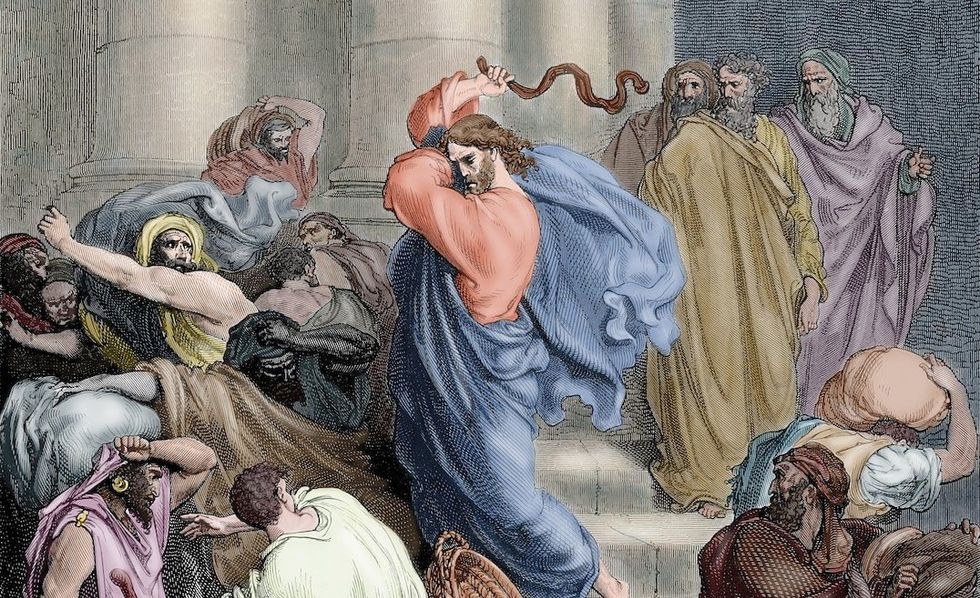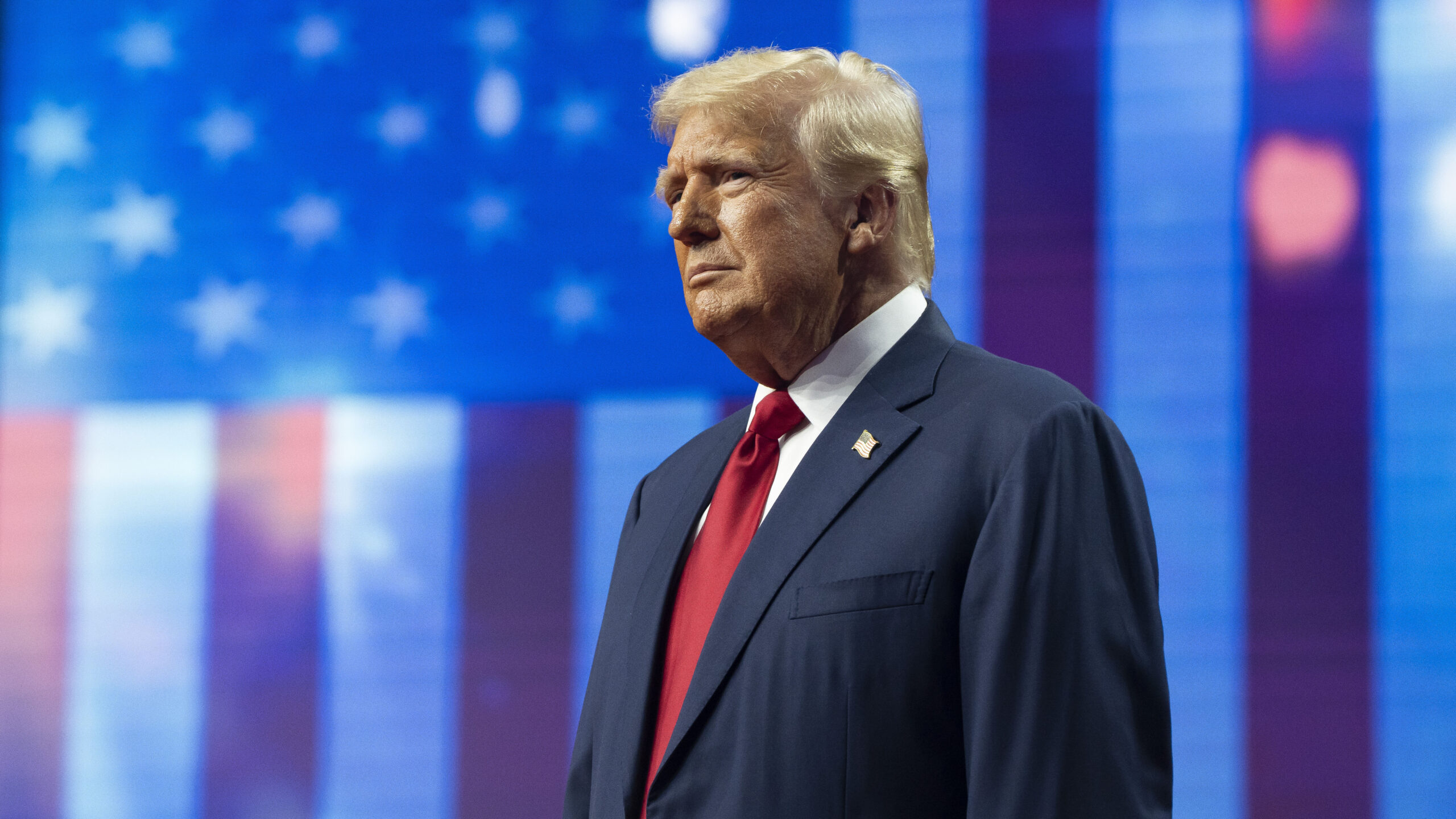Dante And The Redemption Of Politics, Part IV: The Political Animal
The following is part four of a four-part series taken from a speech delivered by Michael Knowles at the National Intercollegiate Studies Institute Honors Conference. * * * So let’s go back down to Francesca for a final point on language. Francesca attempts to translate the story of Lancelot and Guinevere into her own life. She makes an interpretive error: ...
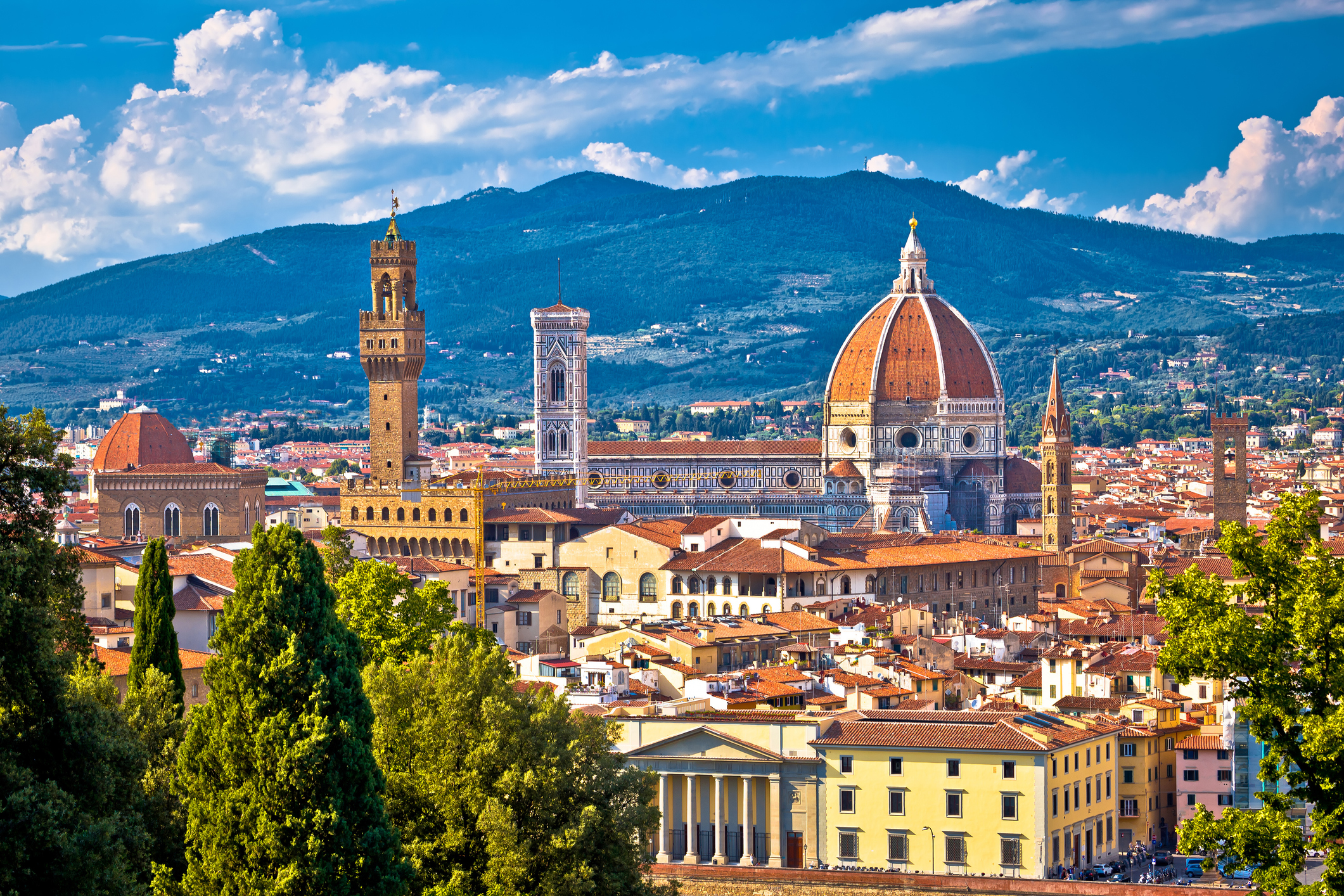
The following is part four of a four-part series taken from a speech delivered by Michael Knowles at the National Intercollegiate Studies Institute Honors Conference.
* * *
So let’s go back down to Francesca for a final point on language. Francesca attempts to translate the story of Lancelot and Guinevere into her own life. She makes an interpretive error: She confuses her own life with the life of the characters in the text, which leads to her death and damnation. And this terrifies Dante.
The canto ends with Dante falling “like a dead body falls.” Why? Because Francesca quotes Dante’s own style of poetry back to him. She alludes to a poem by Guido Guinizelli, the founder of Dante’s sweet new style of poetry. And Dante fears that he might have played a role in her damnation.
Which is why the canto is, if not political, at least politics-adjacent. Because it reminds us that there is no such thing as a purely personal sin. Man is the political animal. What we do affects other people. Dante is telling us what the feminists will tell us seven centuries later: the personal is political.
Now we come to the first political canto, “Inferno” VI, which concerns Florence. This is the circle of the gluttons, and Dante meets a Florentine he doesn’t recognize: Ciacco. When Dante asks him to identify himself, Ciacco responds, “Your city, which is so full of envy that the sack already overflows, kept me with her during my sunny life. Your citizens called me Ciacco.” Ciacco is like Florence. The city is like a body. It’s the body politic. And political ills are like bodily ills. The glutton is filled to overflowing, just as Florence is filled to overflowing.
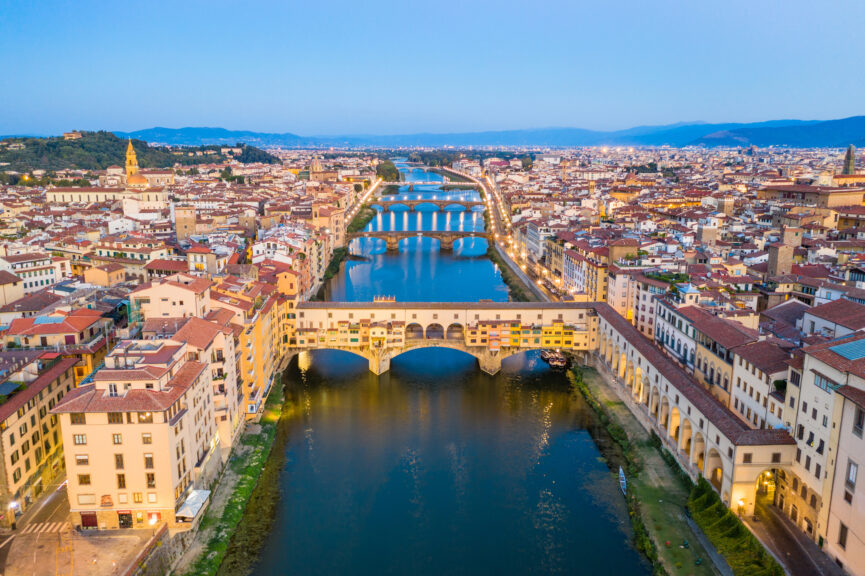
Ponte Vecchio bridge. Florence, Italy. Getty Images.
The allegorical meaning, Ciacco tells us, is that Florence is filled with envy. But there is a literal meaning too: There are too many people in the city. Dante’s ancestor Cacciaguida recalls this fact (and analogy) in “Paradiso” XVI, when he warns, “The mixing together of persons has ever been the beginning of harm to the city, as excessive food is cause of your diseases.” This argument follows Aristotle, who warns in “Politics” against “the reception of foreigners” in polities, as their presence “has generally produced revolution.” The practical politicians in the room will here find philosophical, poetical, and heavenly sanction to wear their MAGA hats and “build the wall.”
Foreigners are not bad in themselves. They just don’t fit. They’re not appropriate. Polities and people are not interchangeable. Florence, like all polities, is not just “an idea.” Ciacco traces the history of Florence through individuals and families. He recounts 86 years of Florentine history by recalling what happened after one Florentine nobleman (Mosca dei Lamberti) plotted the murder of another nobelman (Buondelmonte de’ Buondelmonti) for jilting a Ghibelline girl for a Guelph.
In our ideological age, it’s difficult to imagine that a romantic slight could be the immediate cause of a nearly two-century civil war. But sometimes it did. Dante actually traces the Guelph-Ghibelline conflict back to a single utterance by Mosca, recalled in “Inferno” XXVIII: “a thing done comes to a head.”
For Dante, history is civil war. A thing is done, it invites revenge, and then more revenge, and more revenge. Mosca’s utterance, which denies man’s agency in the unfolding of history, constitutes “the seed of evil for the Tuscans.” It’s the demise of the city.
But cities die. As Cacciaguida reminds us, “Cities have their end. The things of your world all have their deaths, just as you do, but in some it is hidden, for they last a long time, and lives are short.” Politics is the indispensable medium in which our salvation occurs, but politics understood as an end in itself leads to death.
WATCH: The Michael Knowles Show
So how do we attain the freedom to avoid this death? We find the answer in “Purgatory,” which opens with Cato, the great exemplar of Roman liberty. We meet in “Purgatorio” II a friend of Dante, the singer Casella, who recites one of Dante’s own poems back to him: “Amor che ne la mente mi ragiona” — “love, which reasons with me in my mind.”
This old poem is important because it declares Dante’s belief that love is a rational thing. Others disagreed. Dante’s poet friend Guido Cavalcanti, for instance, thought love was irrational. The courtly love tradition presented love as a kind of madness. Dante says no: Love, properly understood, is rational — which will help us to understand the famous final line of the “Comedy.”
Having glimpsed the beatific vision, Dante concludes, “Here my high imagining failed of power; but already my desire and will were turned, like a wheel being moved evenly, by the Love that moves the sun and the other stars.” That love is not only rational; it’s the Logic of the universe. And the concord between that rational love and the individual will is, for Dante, the substance of freedom.
So the line that Casella sings to Dante is good and true. And still, Cato yells at the group for listening to it. “What negligence, what standing still is this?” he cries. “Run to the mountain to shed the slough that keeps God from being manifest to you.”
The souls have fallen prey to nostalgia, which is a danger not because the past is bad but rather that it’s past, and we’re on a journey, and we need to keep your eyes on the prize. History and the political order serve an important purpose, but the purpose is to point us beyond history and politics. Dante and Casella are delighting in the sweetness of a poetical and philosophical intuition, but in so doing, they’re forestalling the reality of that which they intuit and seek.
The past is good because it’s for the future. The polity is good because it’s for a community beyond the polity. The particular is good because it’s for the universal. History is good — but only in light of its end, which is the eschaton and the life of the world to come.
It’s all about hope, which is the theological virtue oriented toward the future. In “Purgatory” VI, Dante asks Virgil whether prayer works. Because in Book VI of the “Aeneid,” Virgil denies the efficacy of prayer. But the souls in Purgatory all pray that God hasten their journey. How does Virgil answer?
“Their hope is not deceived,” he says. “Where I fixed this point, defect was not amended by praying, because prayer was disjoined from God.” But with the Incarnation, God has entered into history and reunited man with himself. The pagans had no such communion with God — crucially, they didn’t even have hope for such a union. So the pagans have hopeless eternity; Christians have hopeful history. We get what we desire. And our desires are mediated and shaped by the people we encounter — most perfectly, by the God who becomes man.
In the world of politics, things don’t always appear hopeful. Hence Dante’s invective in “Purgatory” VI against Italy. “Ah slavish Italy,” he cries, “dwelling of grief, ship without a pilot in a great storm, not a queen of provinces, but a whore! … What does it profit that Justinian fitted you with the bridle, if the saddle is empty? Without the bridle the shame would be less.”
Emperor Justinian, who appears in “Paradiso” VI, codified Roman law, the bridle on human action. No offense to our libertarian friends, who say that “politics is downstream of culture.” But Dante sees the law as a tutor — the bridle that reins in our lower and destructive desires and thereby establishes the conditions for true freedom.
But the bridle is useless if the saddle is empty; law does nothing without a ruler to enforce it. So Italy has become a slave, having traded the liberty of the queen for the licentious servitude of the whore. Rome weeps, Dante says, “widowed and alone, and day and night calls out: ‘My Caesar, why do you not accompany me?’”
Italy is a bride in need of a bridegroom as the Church is the bride of Christ. Dante cries out, “O highest Jove, who were crucified on earth for us, are your just eyes turned elsewhere?” The polity is the bride of the Emperor, and that this natural union is a figure of that supernatural union. Nature and supernatural orders work together — or they should.
But the emperors — Albert and Rudolph Habsburg, specifically, in Dante’s view — have abandoned their bride because of covetousness. They preferred private interest to the common good. Albert and Rudolph show us that noble lineage does not necessarily confer true nobility. But, Dante says, this is how God arranged it. “Seldom does human probity rise up through the branches, and this is willed by him who gives it, that it may be attributed to him.”
Dante spells out this lesson more fully in “The Banquet.” “The divine seed,” he writes, “does not fall on a lineage, that is on a family stock, it falls on individual persons … the stock does not make individuals noble; rather, individuals make the stock noble.” Why? Because “God alone bestows it on the soul” for “every good endowment and every perfect gift is from above.”
Here again, a tension. On the one hand, Dante says we’re essentially creatures of social context, formed by historical, political, and legal circumstances out of our control; on the other hand, he says we’re essentially individuals, whose stock will be ennobled or degraded according to the graces bestowed by God on us individually. So which is it?
We find out in “Purgatory” XXVI, where Marco of Lombardy restates the problem: “You who are alive still refer every cause up to the heavens, just as if they moved everything with them by necessity. If that were so, free choice would be destroyed in you, and it would not be justice to have joy for good and mourning for evil.”
In reality, he explains, “The heavens begin your motions … a light is given you to know good and evil, and free will, which, if it lasts out the labor of its first battles with the heavens, afterwards overcomes all things, if nourished well. To a greater Power and a better Nature you lie subject and therefore free, and that creates the mind in you, which the heavens do not govern.”
We are born in our circumstances, made by “a happy Maker.“ But then we taste the flavor of lesser goods, which we pursue to our detriment “if a guide or rein does not turn away” our love for them. We need just rulers to direct our desires back toward reason. Therefore, Marco explains, “you can clearly see that bad government is the cause that has made the world wicked, and not nature corrupt in you.”
And the chief cause of this bad government, for Dante, is that the Church has usurped the power of the Emperor. Which brings out a beautiful paradox that becomes apparent in “Purgatory” XXVII, when Virgil bids farewell to Dante by saying, “No longer wait any word or sign from me: free, upright, and whole is your will, and it would be a fault not to act according to its intent. Therefore you over yourself I crown and mitre.” “Crown and mitre” — state and Church.
The purpose of the separation of Church and State on earth, in other words, is that they be united in heaven. The purpose of our subjection to rulers is that we become free and whole as individuals. The purpose of our particular experience in time is universal blessedness in eternity. These apparent opposites are not really opposed. One is simply the way to the other.
Thus, Justinian tells Dante in the final canto of the political triptych, “Different voices make sweet notes: thus different thrones in this our life produce a sweet harmony among these wheels.”
Dante’s voice will be formed by the particular trials of his particular exile, as Cacciaguida foresees in “Paradiso” XVII: “You will experience how salty tastes the bread of another.” This is an inside joke. The bread will be salty because of the tears of exile but also, specifically, because Florentine bread is made without salt — a universal saltiness understood through a particular saltiness.
“You will experience,” Cacciaguida warns, “what a hard path it is to descend and mount by another’s stairs” — the universal indignity of exile but particular to Dante’s — here is another little play on words, I think — because Dante’s patron is Cangrande della Scala — scala meaning “stairs.”
Notice the order. We expect an exile begging patronage to ascend the stairs of the patron’s court. But Dante says “to go down” and then “to go up,” which is the form of both the poem and salvation. As for Dante’s fellow partisans, Cacciaguida warns, “Of their stupidity the outcome will provide the proof, so that for you it will be well to have become a party unto yourself.”
Does this mean we should ignore politics? No. Dante has insisted in excruciating detail upon the importance of politics even to salvation. Dante himself remained active in politics as a pamphleteer until the death of Henry VII in 1313. But Dante is reminding us that exile and salvation ultimately pertain to the individual. We are judged alone.
“If I am a timid friend to the truth,” Dante concludes, “I fear I will lose life among those who will call this time ancient.” If Dante prefers political expediency to the truth, not only will he forfeit his salvation; he will lose even his significance in history. So having seen the face of God, with memory failing and only sweetness in his heart remaining, he returns to earth to meet us, who are where he was, to guide us on our own particular pilgrimages. And thank God for that.
* * *
RELATED: Dante And The Redemption Of Politics, Part I: Understanding Dante’s Vision
RELATED: Dante And The Redemption Of Politics, Part II: The Pilgrim’s Journey
RELATED: Dante And The Redemption Of Politics, Part III: Distinguishing Between True And False Freedom
Originally Published at Daily Wire, World Net Daily, or The Blaze
What's Your Reaction?















